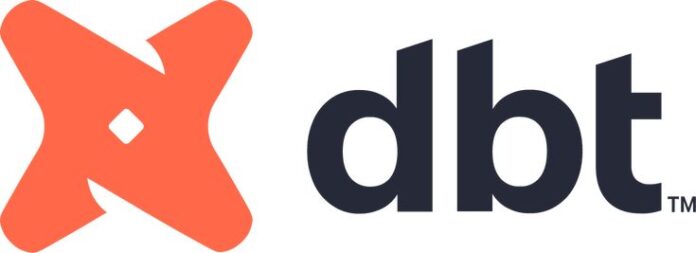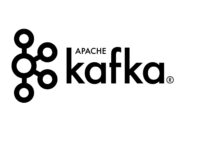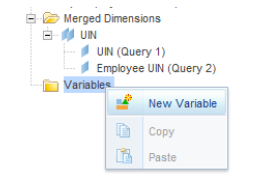Engineers typically desire two things.
- Speed: development speed to move from an idea to production code, the time to create the desired output, and the frequency of releases.
- Reliability: Stability stems from simplicity; the overall design becomes unstable when designs are too complex and will not scale. Complexity runs the risk of increased code defects, increased time fixing bugs, and unreliable testing. So reliability is dependent on the following:
- Stability: macro metrics measured in the total incident count, % of failures release over release, and the mean time to recover (MTTR).
- Scalability: measured by its ability to scale horizontally to manage more volume and the flexibility to add new functionality without increased Code Cyclomatic, Cognitive, or Halstead Complexity measures.
These five principles can enable speed & reliability:
- Frameworks
- Elastic Infrastrucuture
- Increased Transparency & Quality Control
- Continuous Integration and continuous deployment (CI/CD)
- Serverless Infrastructure or Managed Infrastructure offloading OPS Risk
DBT Labs (the company behind DBT, or (Data Build Tool) offers several benefits to data engineers. It focuses on streamlining and empowering the data transformation process in modern data workflows. While a strong developer might get at least a 3X acceleration, the more novice developers can quickly get a 10X boost in productivity across the data transformation lifecycle. I created a data pipeline, tested it, and deployed it to production in three hours, and that would taken a full 2-3 week sprint using pure pyspark or scalar spark lifecycle. Here are the primary advantages for data engineers:
1. Simplified Data Transformation Workflow
- SQL-Centric Approach: DBT leverages SQL, a language that data engineers are already familiar with, making it easy to adopt without requiring a steep learning curve.
- Modularity: Allows engineers to create reusable SQL models, breaking transformations into smaller, maintainable chunks.
- Ease of Debugging: With clearly defined models and lineage, as well as inbuilt previews, identifying issues in data pipelines becomes easier.
2. Enhanced Collaboration
- Version Control with Git: DBT integrates well with Git, enabling collaborative workflows with features like branching, pull requests, and version history. This is the first principle of 12 Factors Apps
- Documentation as Code: DBT encourages documenting SQL models directly in the codebase, improving knowledge sharing and onboarding.
3. Transparency and Data Lineage
- Data Lineage: DBT automatically tracks dependencies between models, providing clear visual lineage. This helps data engineers understand the upstream and downstream impacts of changes, facilitating both Root Cause Analysis (RCA) and Impact Analysis.
- Testing and Validation: Built-in testing ensures data quality by allowing engineers to define tests (e.g., uniqueness, null values) on models supporting a TDD approach to development.
4. Scalability and Performance
- Optimized Querying: DBT compiles SQL into optimized queries for the target data warehouse (e.g., Databricks, Snowflake, BigQuery, or Redshift), leveraging the warehouse’s computational power.
- Incremental Models: DBT supports incremental loading, reducing resource consumption and speeding up pipeline execution for large datasets.
5. Productivity Gains
- Pre-built Integrations: DBT supports a wide range of modern data platforms, making it easy to connect with your existing stack.
- Macros and Jinja Templates: Allows engineers to create reusable code snippets for repetitive tasks, reducing duplication and increasing efficiency.
- Rich Ecosystem: Access a growing library of community-contributed DBT packages for common transformations.
- AI Co-pilot: This may not be General Availability (GA) yet, but I was able to beta-test it, and the development speed is incredible. It was able to use emerging syntax that I was not aware of in the DBX platform and rewrite better queries.
6. Proactive Monitoring
- Cloud Features: With DBT Cloud, engineers get an orchestrated environment with automated runs, Slack notifications, and error tracking.
- CI/CD Workflows: DBT integrates with CI/CD pipelines, allowing engineers to test and deploy changes systematically.
7. Strong Community and Support
- DBT has a vibrant community of data professionals who offer shared knowledge, best practices, and open-source contributions. This collective wisdom can be a valuable resource for data engineers.
8. Cost Efficiency
- By focusing on transformation after the extract and load (T in ELT), DBT leverages the computational power of modern data warehouses, reducing the need for additional infrastructure and tooling.
- Independently Deployable Modules: By deploying and building only what is needed for the change, you can save time, reduce cost, and reduce the risk of defects.
- SQL is the most fungible programming skill: A newbie who knows SQL can be as productive as a pyspark developer in half the time, giving great ROI for the available talent pool.
9. Transformation Portability
- Bring Your Query Engine (BYQE): Transformation code is easily converted to the syntax of your favorite data platform. If you want to take advantage of a rising popularity computing engine, you can change your transformation (T) as fast as you can do your extractions and Loads (EL) to the new platform.
- Enterprise strategy: Ingest and empower the many bespoke business desktop data pipelines and make them visible enterprise-wide with complete lineage.
10. Career Development
- Market Demand: As DBT adoption grows, proficiency in DBT is becoming a sought-after skill for data engineers, analysts, and analytics engineers.
- Cross-functional Exposure: DBT encourages data engineers to work closely with analysts and business users, broadening their understanding of end-to-end data workflows.
DBT Labs enhances the efficiency, reliability, and scalability of data transformation processes, making it an invaluable tool for data engineers in modern data ecosystems.









